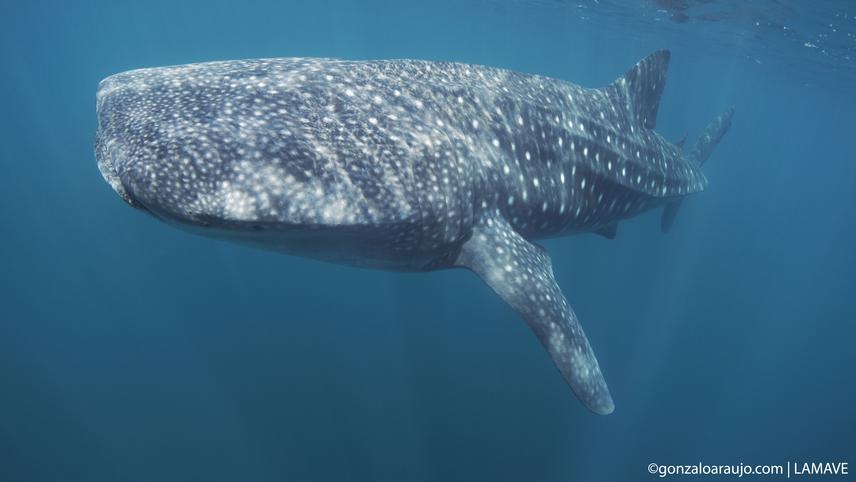Gonzalo Araujo
Other projects
We will assess the distribution and seasonality of whale sharks in Malimono and Talisayan, and explore the suitability of ecotourism at these old hunting grounds. We will raise awareness about the species and work to reduce their threats.

Following four seasons of whale shark research and conservation work at Panaon Island in Southern Leyte (supported by RSG-16824-1), we learnt that whale sharks reside in certain areas to feed on specific food pulses. These pulses can be short after which the whale sharks move to new areas. Unstructured interviews with local fishermen revealed the occurrence of whale sharks in northern Mindanao so we conducted exploratory trips there to confirm their presence during March and April 2016.
We identified 4 individual whale sharks in Talisayan, and 6 individuals in Malimono. We opportunistically deployed 5 satellite tags through collaborative work with Marine Megafauna Foundation. Preliminary results from these tags showed the whale sharks move back and forth between these two sites, and a further site near Magsaysay, Misamis Oriental (Araujo, unpub.data). The reason for their occurrence and seasonality in the area remains unknown. Whale sharks were encountered in close proximity to black skipjack fish, and interactions with fishermen are common. We will assess the threats such interactions and work with the fishermen to mitigate them.
At least 386 whale sharks were landed in Guiwanon, Talisayan, between 1993-1997 (Alava et al., 2002). Following a ban on the catching of whale sharks in 1998, the support to explore alternative livelihoods with the hunters was not pursued. The seasonal occurrence of whale sharks could provide the opportunity to develop ecotourism, engaging with the hunters and their knowledge of the species through a sustainable use of the whale shark.
We will conduct surveys for whale sharks using small local pump boats, and an Unmanned Aerial Vehicle (UAV –drone). We will conduct plankton tows to understand what the whale sharks are feeding on at these sites. The results obtained will be presented to the local authorities with the aim of raising awareness about the whale sharks in the area, and work with them to develop a sustainable whale shark tourism industry should their seasonality prove reliable.